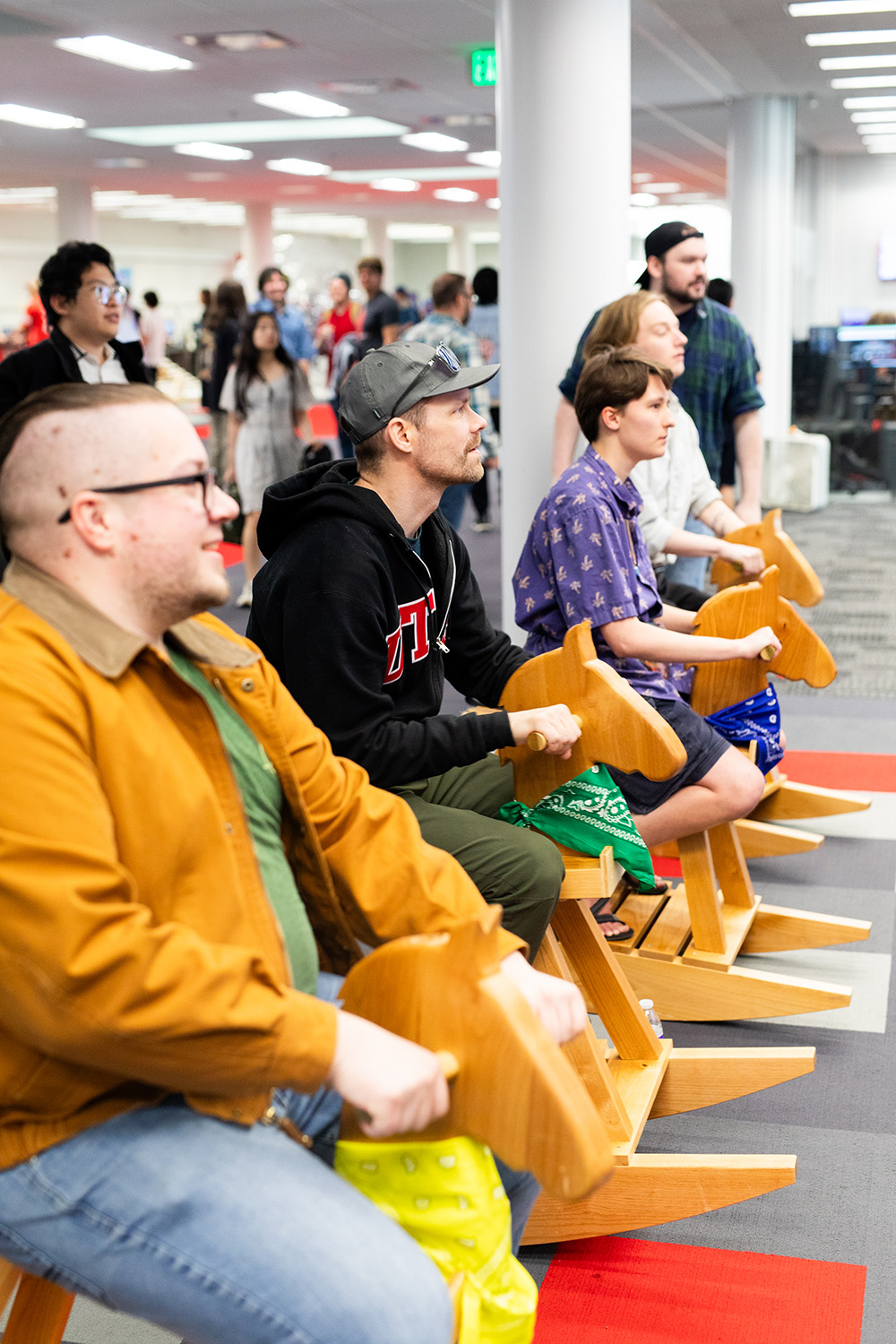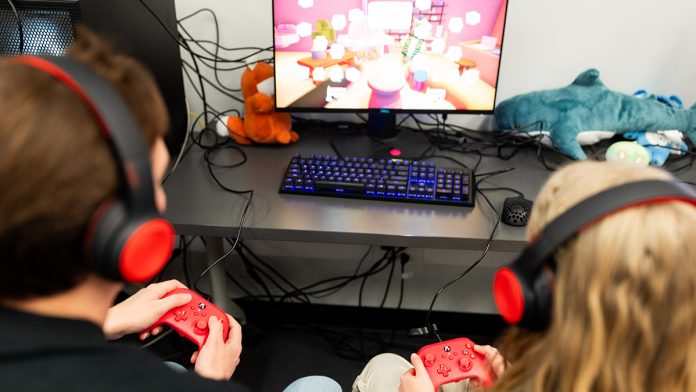CNBC featured Salt Lake City in its “City of Success” TV series last year, and dedicated one segment to its growing reputation as a mini hub for video game development. The acclaimed show spotlights “cities that have become business power centers driving economic change.”
Worldwide, the video game industry boasts more revenue than the movie and music industries combined, generating $228 billion in 2023, and projections exceeding $300 billion by 2028.
Heavily featured in the segment was the University of Utah Division of Games (Utah Games), a one-of-a-kind academic experience that exemplifies the spirit of the Utah Legislature’s 2025 S.B.162 Talent Connect bill. With hundreds of alums working at Utah-based companies, Utah Games is a crucial pipeline for supplying visionaries and a skilled workforce for the growing local sector—and that’s by design.

Our program is built to evolve with the latest gaming trends and innovations, giving our students a relevant degree with which to thrive in the industry even before they graduate. Its success is in the stats. In 2024, the Utah Games division (formerly known as Entertainment Arts and Engineering) was ranked No. 1 among U.S. public universities by U.S. News and World Report. In 2025, the Princeton Review ranked its undergrad program No. 1 and graduate program No. 2 for public universities worldwide for the second consecutive year.
With 17 gaming companies based in the Silicon Slopes region and 21 total across the state, the local industry is edging its way into a space traditionally dominated by Tokyo, Los Angeles and the San Francisco-Bay Area. As CNBC reported, revenue from the games industry in Utah has grown by 230% in the last decade, bringing $2.6 billion to the state’s economy last year and is expected to generate $4.5 billion per year by 2029.
Since first offering courses in 2008, Utah Games has invested in close relationships with industry leaders who inform our curriculum and connect students to local opportunities. For example, every undergrad and graduate student publishes at least one video game, and often more. We invite hiring managers and studio executives from around the country to visit our studios and see our student projects, spurring internships that lead to jobs. U graduates have been credited on games that have generated over $2 billion in sales, with $1 billion coming from games made right here in Utah. A local studio, Warner Bros. Games’ Avalanche Software, produced the highest selling game of 2023: Hogwarts Legacy. As of January 2024, the game had sold 22 million copies—and more than 40 Utah Games alums helped make it a phenomenon.

Our university environment is ideal for exposing students to the wide-ranging disciplines required for building virtual worlds. A successful game relies on so much more than coding skills. Technical artists create stunning interactive visual effects, writers craft characters to play out riveting narratives, engineers program complex gameplay, and on and on. Top-ranked faculty offer interdisciplinary courses for students to home in on their specialty and provide invaluable assets to future employers. Psychology to anticipate player behavior, digital art to paint fantastical worlds, philosophy for aesthetics and ethical design, management for leading high-performance teams, physics and architecture to root the world in reality…along with game development courses to lay foundational knowledge and skills using complex game-making methods.
While the Division of Games has had a remarkable track record, we’re just getting started. In 2024 the program moved its home to the U’s College of Architecture and Planning, a school well-known for giving students practical experience working in their communities. We are now teaching our degree at the Utah Asia Campus in South Korea and facilitate student exchanges between programs. Last year, U President Taylor Randall committed $25M to Utah Games to grow its faculty, staff, and teaching and research infrastructure. We’re in the middle of a multi-year hiring push that will more than double our size to match the demand of our growing student enrollments, which is now the 8th most popular major on campus.
Beyond the industry’s obvious economic impact, we believe in the power of games to change people’s lives for the better. Our mission is to develop a deeper understanding of where that power comes from, to share that understanding with our students, and to help them put their skills to work to make the world a better place.
MEDIA & PR CONTACTS
- Paulina Sylvester assistant director of communications, School of Architecture + Planning
p.sylvester@utah.edu
